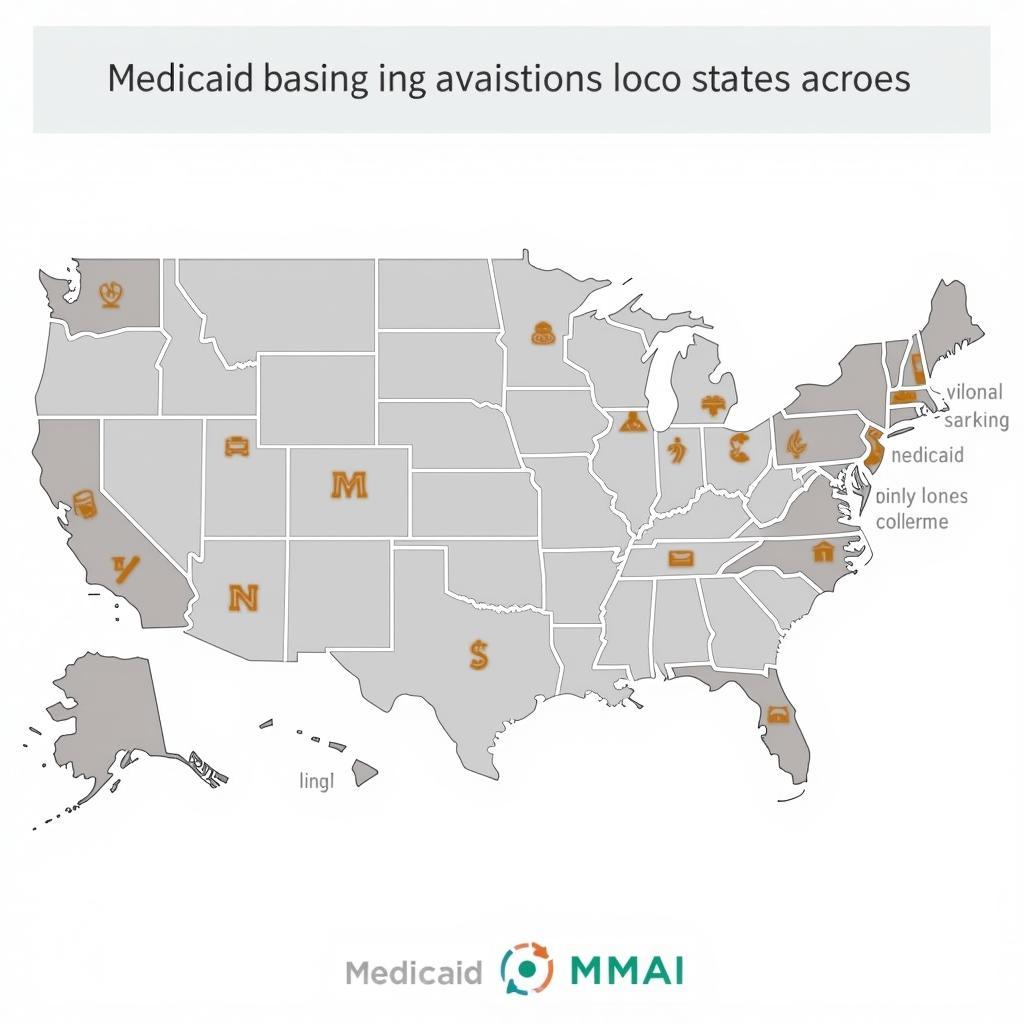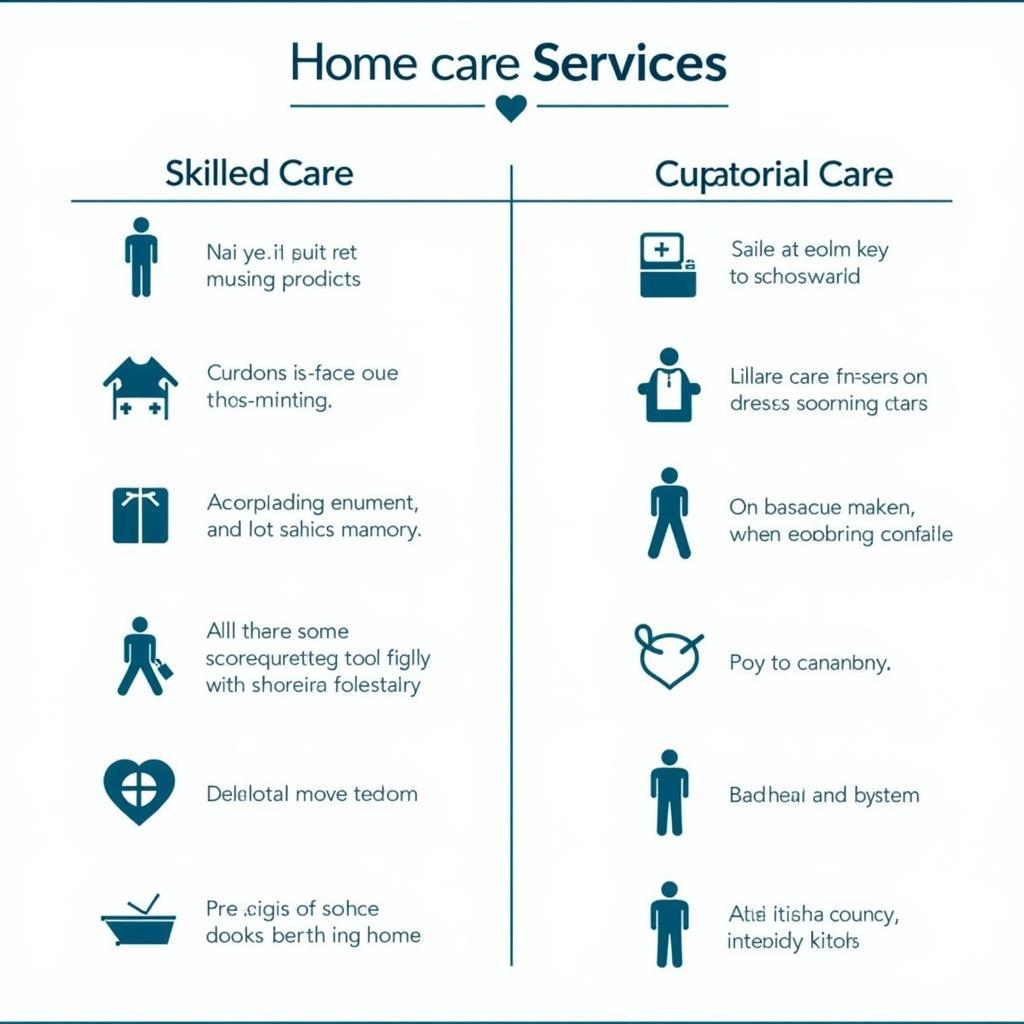What Insurances Pay for Home Care Services?
Understanding What Insurances Pay For Home Care Services can be confusing. This article aims to clarify which insurance types typically cover home care, what services are covered, and how to navigate the process of obtaining coverage.
Decoding Home Care Coverage: A Comprehensive Guide
Navigating the world of home care insurance can feel overwhelming. Let’s break down the different insurance options and their potential coverage for home care services.
Medicare and Home Care Services: What You Need to Know
Medicare, a federal health insurance program for people 65 or older and certain younger people with disabilities, covers certain home health care services under specific circumstances. These services are typically short-term and medically necessary, such as skilled nursing care, physical therapy, and occupational therapy. Medicare does not generally cover long-term custodial care, which includes help with activities of daily living like bathing, dressing, and eating.
 Medicare Home Healthcare Coverage
Medicare Home Healthcare Coverage
Medicaid and Home Care Services: A State-by-State Overview
Medicaid, a joint federal and state program, provides healthcare coverage to low-income individuals and families. Unlike Medicare, Medicaid can cover both skilled home health care and custodial care, although the specific services and eligibility requirements vary significantly from state to state. Understanding your state’s specific Medicaid guidelines is crucial for navigating the application process.
 Medicaid Home Care Benefits
Medicaid Home Care Benefits
Private Insurance and Home Care: Exploring Your Options
Private health insurance plans, including employer-sponsored plans and individual policies, may offer some coverage for home care services. The extent of coverage varies widely depending on the specific plan. Some policies may cover a limited number of home health visits following a hospitalization, while others may offer more comprehensive coverage, including custodial care. Reviewing your policy details and contacting your insurance provider is essential to understanding your specific benefits.
Long-Term Care Insurance: Planning for the Future
Long-term care insurance is specifically designed to cover the costs of extended care services, including both home care and facility-based care. These policies typically cover a wider range of services than traditional health insurance plans, such as personal care, homemaker services, and respite care. Purchasing a long-term care insurance policy while you are still relatively healthy is generally recommended, as premiums tend to increase with age.
Understanding the Nuances of Home Care Insurance Coverage
Several factors can influence whether your insurance will cover home care services. These factors include the type of insurance you have, the specific services needed, your medical condition, and your state of residence. Consulting with a healthcare professional or a home care agency can help you navigate the complexities of insurance coverage and determine the best options for your situation.
What services are generally covered by insurance for home care?
Insurance coverage for home care often includes skilled nursing care, physical therapy, occupational therapy, speech therapy, and medical social services. Coverage for custodial care, such as help with bathing and dressing, is less common but may be available through Medicaid or long-term care insurance.
 Home Care Services Covered by Insurance
Home Care Services Covered by Insurance
Frequently Asked Questions (FAQ)
- Does Medicare cover 24-hour home care? Generally, no. Medicare covers intermittent skilled care, not continuous around-the-clock care.
- How do I apply for Medicaid home care benefits? Contact your state’s Medicaid agency to learn about eligibility requirements and the application process.
- What is the difference between skilled nursing care and custodial care? Skilled nursing care involves medical procedures and treatments, while custodial care focuses on assistance with daily living activities.
- How much does long-term care insurance cost? Premiums vary based on age, health status, and the level of coverage chosen.
- Can I use a combination of insurance plans to cover home care? Yes, in some cases, you can combine different insurance sources to maximize your coverage.
- What if my insurance claim is denied? You have the right to appeal the decision. Your insurance provider should provide information about the appeals process.
- Where can I find more information about home care services in my area? Contact your local Area Agency on Aging or search online for home care agencies in your region.
Conclusion
Understanding what insurances pay for home care services requires careful consideration of various factors. By exploring your options and understanding the specific guidelines for each insurance type, you can make informed decisions about securing the necessary coverage for your or a loved one’s home care needs.
Need support with car diagnostics or other car services? Contact us via WhatsApp: +1(641)206-8880, Email: [email protected] or visit us at 456 Oak Avenue, Miami, FL 33101, USA. Our customer support team is available 24/7.

